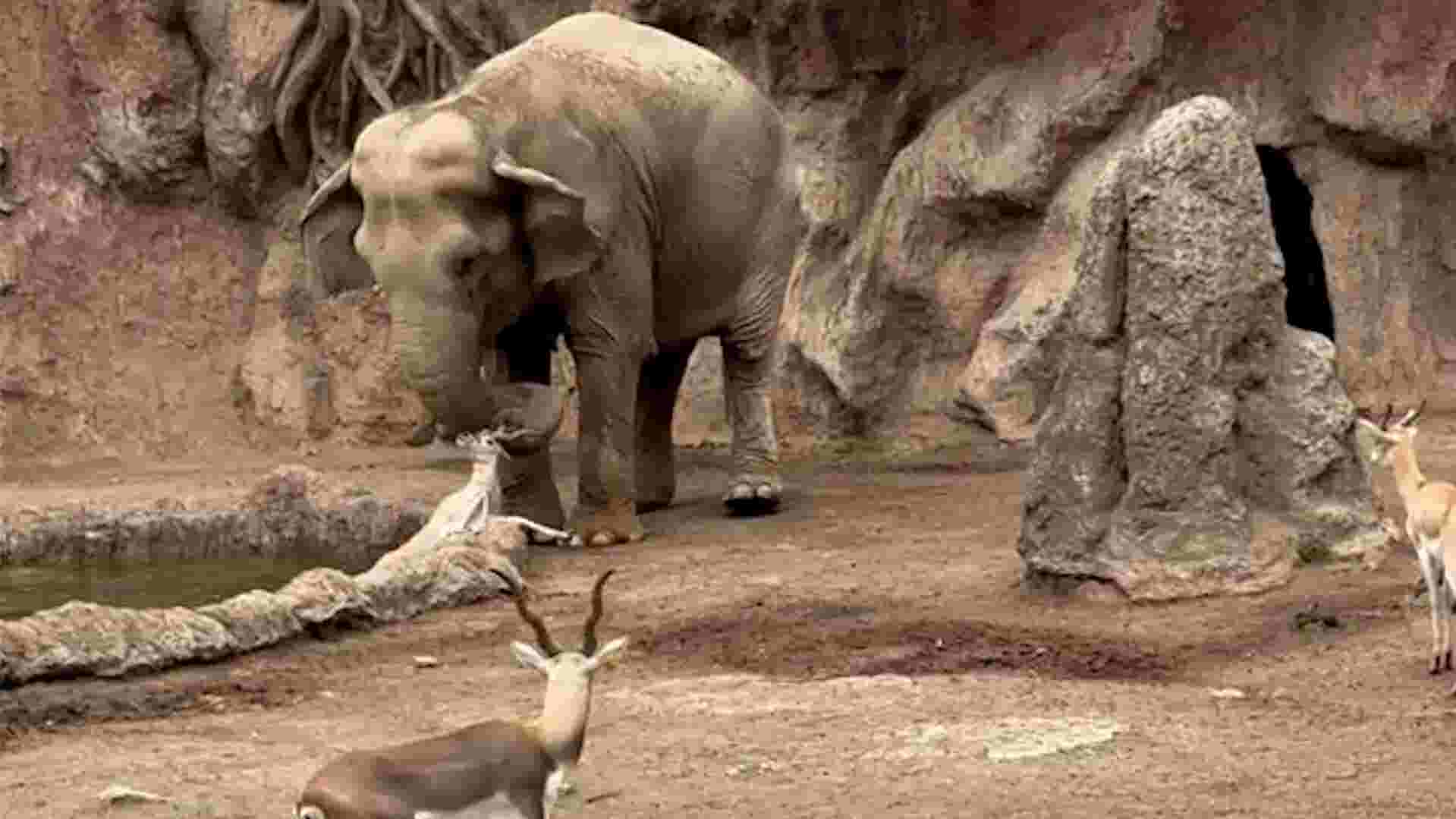Latisha Tucker has always known her daughter, LaR’iyah, had star power.
So when her 4-year-old went TikTok viral in February for line dancing to 803Fresh’s hit song “Boots on the Ground,” she wasn’t surprised. LaR’iyah, known online as “Ms. Shirley,” had gone viral before. But the TikTok, where she smiled while stomping with fringe boots and a pastel pink fan, brought her a new legion of fans. She grew to 981,000 followers on the platform, appeared on the Jennifer Hudson show and was featured in 803Fresh’s music video of the song.
What Tucker didn’t expect, however, was how quick the stream of hate from viewers followed. Suddenly, the TikTok page’s comment section was filled with viewers sounding off on everything from if the level of attention on LaR’iyah is excessive to if the dance moves are appropriate for a 4-year-old.
“When are we gonna stop exploiting our babies?” one commenter seethed. “This is wild that we think this is OK,” another replied.
The attention crossed a line after TikTokers posted videos stating they were calling Child Protective Services on Tucker.
It’s the latest instance of a parent receiving flak over posting their children online. When parents put their child on social media, they open themselves up for reactions that may be out of their control, says Leah Plunkett, author of “Sharenthood: Why We Should Think Before We Talk About Our Kids Online” and a faculty member at Harvard Law School.
Who is viral sensation, Ms. Shirley?
The earliest videos on the TikTok account feature hairstyles done by Tucker, who works as a hairstylist, and videos of LaR’iyah as a baby. LaR’iyah started teaching herself line dances by propping up Tucker’s phone. By 2 years old, she was dancing to Megan Thee Stallion, the Wop dance club remix and GloRilla.
The nickname “Ms. Shirley” is one she’s had since birth and has no correlation with actress Shirley Temple.
Tucker says she knows haters come with the territory of being an online creator. She says those making response videos are looking to monetize discussion of LaR’iyah for their own platform, given her name recognition.
“A lot of them just joined the bandwagon of what somebody is saying,” Tucker says.
Since going viral, LaR’iyah has taken part in more than 10 in-person events as a celebrity guest, including rodeo days, parades and family events. Her critics say these appearances give adults too much access to a small child.
As her fame has grown, so has misinformation. Some posts criticizing Tucker that included videos showing adult men holding LaR’iyah turned out to be adults Tucker already knew.
“People just pick and choose and point out and place it in the timeline where it’ll fit their narrative,” Tucker says, adding that she is always right beside LaR’iyah.
‘You can’t put the genie back in the bottle’
The backlash toward Tucker heated up when some critics recently re-upped a video she’d posted in 2024 of LaR’iyah doing the “Red Dress” trend. In the video, which has more than 3.7 million views, LaR’iyah puts on a red dress, heels, lipstick and a wig over lyrics over Johnny Gill’s 1990 R&B song “My, My, My.”
Commenters argued the suggestive nature of the song could direct bad actors toward LaR’iyah’s videos. Tucker says the video only started receiving backlash this spring, even though it’s been up for more than a year.
“All she is doing is being a kid like any other kid. like when we were young as little girls, we put on our moms’ lipstick, her dress or her wig and her heels, and that’s all it was,” Tucker says.
The difference, experts say, is that when those childhood moments are put out to viewers online, they can’t be taken back.
In the modern digital age, where photos and videos make a permanent trail, child influencers will come face to face with the digital footprint left in their childhood, says Stacey Steinberg, a law professor at the University of Florida’s Levin College of Law and the director of the school’s Center on Children and Families.
“You can’t put the genie back in the bottle,” Steinberg says. “We have a lot of kids whose relationship with society has been permanently altered by these decisions by parents.”
Plunkett says children in the online spotlight may afterwards struggle developmentally to figure out who they are without adults writing the script for them. And posting about kids online can blur the boundaries in children’s minds of what is real and what is imagination.
“That stage is also their home, their school, their community, trips they’re taking with their parents,” Plunkett says. “They are not going to understand what is their real life and what is their stage life, and that can have really complicated and in some instances, devastating consequences.”
The risk of sharing your child online
Steinberg says parents considering posting their kids should weigh motivations for sharing with their children’s rights to maintain their privacy and control over their own digital footprint.
Parents who share their children online risk data collection and exposure to bad actors. Strangers may use information posted online to find personal details, like where a child attends school, and collect or share data, including innocent images of children, in ways the creator has little control over.
Child creators also risk being on the receiving end of fans who develop unhealthy relationships, which can result in incessant interactions that cross personal boundaries and stalking.
Steinberg says some kids might appreciate the financial income or platform that comes with sharing, but others might come of age and feel “embarrassed or self-conscious” about information that was shared, especially if it doesn’t line up with the person they hope to be in adulthood.
Tucker says she plans to put LaR’iyah’s money aside to use for future plans, like a college education, and that she hopes the publicity will give her a platform to pursue dance or singing.
Her supporters tell her to keep dancing. On a Facebook fan page, nearly 30,000 followers, many of whom lovingly refer to themselves as internet aunties, dote over new photos of LaR’iyah donning blinged out outfits, post prayers for her family and promote her events.
The comments are filled with messages of support: “Keep on stepping babygirl!” “Don’t dim your shine.” “Team Ms. Shirley forever.”
Rachel Hale’s role covering Youth Mental Health at USA TODAY is supported by a partnership with Pivotal Ventures and Journalism Funding Partners. Funders do not provide editorial input. Reach her at rhale@usatoday.com and @rachelleighhale on X.








